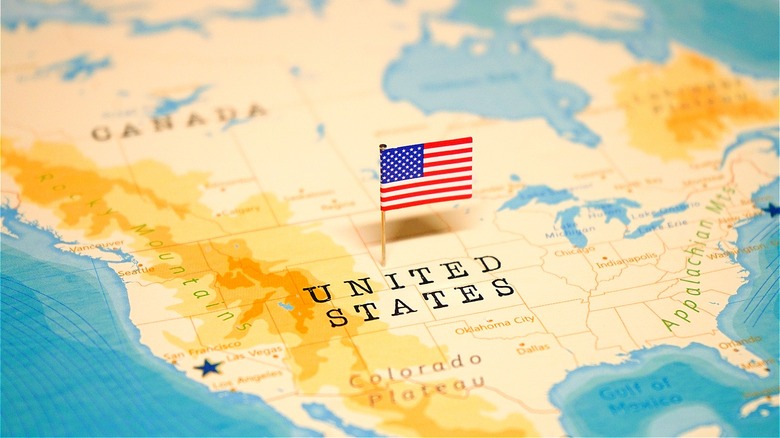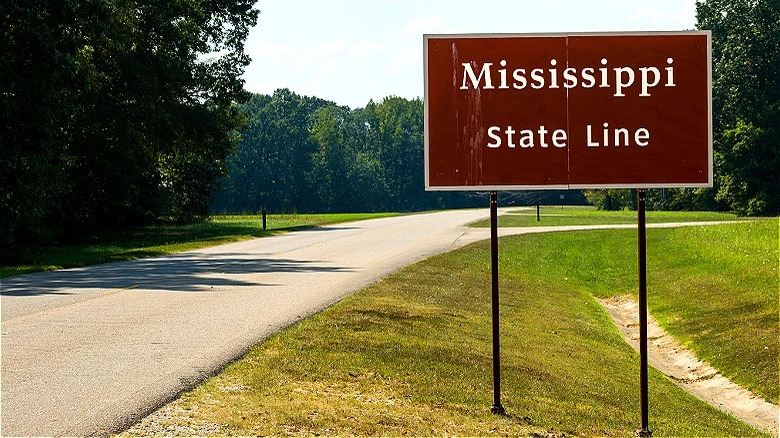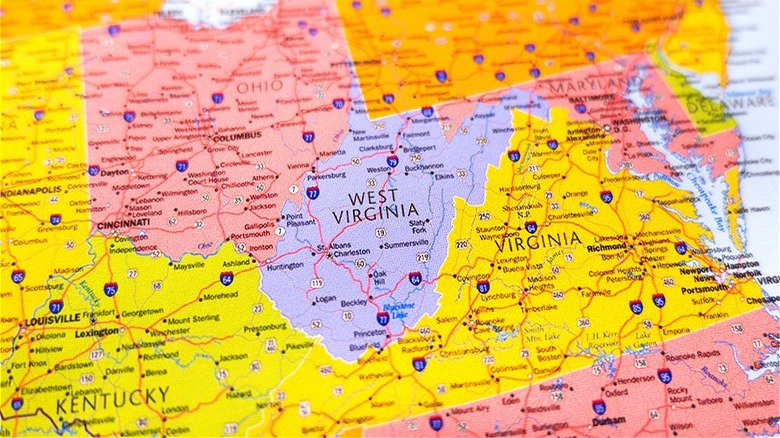The Worst States To Work In, According To Research
The unemployment rate in the United States, as of May 2024, was just 4%. While this might spell good news for many, increasingly, just having a job isn't enough. In fact, according to Gallup, worker engagement has been steadily falling, hitting just 32% in 2022 and reaching a new 11-year low of 30% in the first quarter of 2024. This marks the lowest reported level of employee engagement (for both full- and part-time employees) since 2013. This decline in engagement is particularly noticeable among workers under 35, those who are forced to be on-site for work that could be done remotely, and those who work exclusively from their homes. All of this is to say that just being employed is simply not enough for millions of Americans (see our explainer on what can make you happier at work).
There are many factors that can and do contribute to worker engagement, from workweek length to union options to hourly wages. Worker protections and rights as well as the option for remote work also contribute to worker happiness and satisfaction. Along all of these factors, there are significant differences across U.S. state lines. From states that still only pay the federal minimum wage of $7.25 (which hasn't been changed, let alone raised, since 2009) to states that still use or want to go back to using child labor, the variety in wage and worker protection policies can make a big difference to a potential worker's ability to not just engage with their job but also financially support their family.
The worst states to work in
While certain measures rank the states differently depending on individual metrics, the general consensus is that states in the South tend to be the worst places to work (according to Peak Sales Recruiting, which analyzed data from the U.S. Bureau of Labor Statistics, the Bureau of Economic Analysis, the Census Bureau, and the Tax Foundation). From poor GDP growth to low levels of union representation to lackluster earnings ratios, many Southern states leave workers without the perks, benefits, and even workplace protections found in other states. This includes Mississippi, which has the second-lowest job growth rate in the U.S., as well as Arkansas and Louisiana, which have some of the highest state and local taxes. All three states also maintain some of the longest work weeks.
Another thing to consider is a worker's earnings ratio (or, the median state wage compared to the living wage required for a family of four). Discrepancies in this ratio can affect your overall quality of life, from not being able to afford housing and health care to the added stress of worrying about your financial situation. When it comes to earnings ratios, New Mexico, Mississippi, West Virginia, and Oklahoma rank among the lowest in the country. An Oxfam America report that combined wage policies, worker protections, and the rights to organize ranked North Carolina and Mississippi as the bottom two states. Similarly, North Carolina has one of the lowest levels of union coverage in the country with just 2% of workers receiving union protections.
The worst states to find a job
Beyond wage limitations and workplace expectations, however, some states are also significantly worse environments when it comes to finding work at all. Job seekers already face unique challenges depending on where they're looking to work, and certain states can make that job hunt even worse. Cassandra Happe, a WalletHub analyst, explained, "The past few years have been volatile for job seekers, going from massive unemployment all the way to worker shortages. Living in one of the best states for jobs can help you not just secure a career, but also improve your chances of getting competitive wages, good benefits and high job security."
According to a WalletHub report for 2023, West Virginia ranked dead last for the job market and second to last for the economic market. This ranking factors in elements like job opportunities, job growth, underemployment levels, and even job security. Other states with low-ranking job markets include Kentucky, Mississippi, and Louisiana. However, more specific state factors might surprise you.
For instance, when it comes to available job opportunities, the three states with the fewest opportunities were Nevada, California, and New Jersey. Or, when looking at the average starting monthly salary for workers, Alaska, Hawaii, and Mississippi ranked the lowest. However, West Virginia, New Mexico, and Maine ranked the lowest for the median average income. All of these factors can be important considerations when debating a new potential job or housing market (especially if you find yourself wondering if you'll ever be able to afford to buy a home).
Remote work
Remote work has changed the employment landscape post-COVID. While some businesses and even geographic regions have forced workers back into the office, remote work is still an attractive option for those on the job market. According to WFH Research data (via Forbes), almost 13% of full-time employees worked remotely in 2023, and an Upwork study found that 22% of America's workforce is expected to work remotely by 2025, meaning it's more important than ever for the state you live in to be friendly to remote workers. Even if you don't currently work remotely, chances are you'll have the opportunity in the future, so knowing which states might be the most economically friendly can be particularly useful.
According to the National Taxpayers Union Foundation's 2023 Report, not all states (specifically their tax and regulatory policies) are particularly friendly to remote workers. Per its report, the states that treat remote workers the worst are Mississippi, New York, Arkansas, Nebraska, and Delaware. WalletHub, on the other hand, ranked Alaska, Montana, and Arkansas as the worst states for working from home. Its ranking compiled data on housing costs, electricity prices, internet availability, and even cybersecurity risks.
It's important to remember that working remotely can lead to more complicated taxes and even health insurance options so make sure to research your prospective job's full offerings before moving forward. Similarly, make sure to check what the local and state tax rates are for remote workers, as some areas might be more complicated for your bottom line than others.



